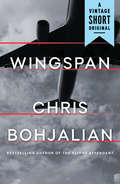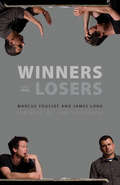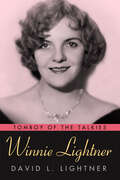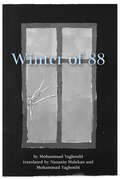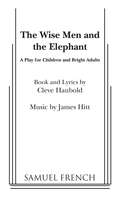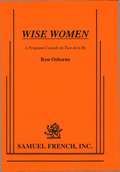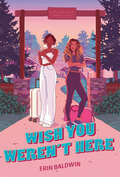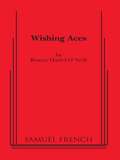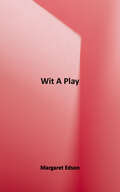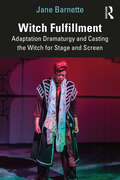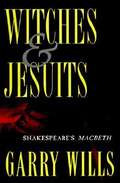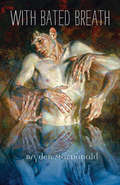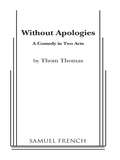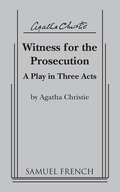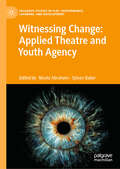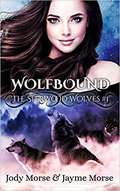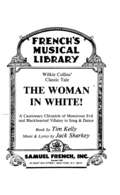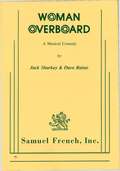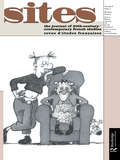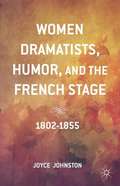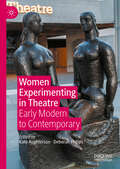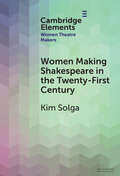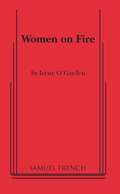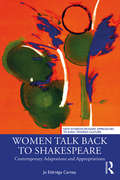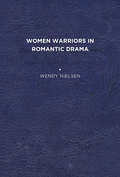- Table View
- List View
Wingspan
by Chris BohjalianOriginally produced as a one-act play starring Grace Experience and K.K. Glick, Wingspan is the story of a young flight attendant with a fear of flying, who is about to work her first transatlantic trip. When a veteran co-worker tries to help her through the turbulent crossing, she discovers that a fear of flying is the least of the young woman’s secrets. A Vintage Shorts Original. An ebook short.
Winners and Losers
by James Long Marcus YoussefTwo friends pass the time together playing a made-up game in which they name people, places, or things and debate whether they are successful or not; in other words, whether they are winners or losers. Each friend seeks to defeat the other, and because one of these men grew up economically privileged and the other did not, the competition very quickly heats up.Marcus Youssef is associate artistic producer at Vancouver's NeWorld Theatre and teaches theater at Concordia University in Montreal.James Long has been making theater since 1995 and is artistic director of Theatre Replacement in Vancouver..
Winnie Lightner: Tomboy of the Talkies (Hollywood Legends Series)
by David L. LightnerWinnie Lightner (1899–1971) stood out as the first great female comedian of the talkies. Blessed with a superb singing voice and a gift for making wisecracks and rubber faces, she rose to stardom in vaudeville and on Broadway. Then, at the dawn of the sound era, she became the first person in motion picture history to have her spoken words, the lyrics to a song, censored. In Winnie Lightner: Tomboy of the Talkies, David L. Lightner shows how Winnie Lightner's hilarious performance in the 1929 musical comedy Gold Diggers of Broadway made her an overnight sensation. She went on to star in seven other Warner Bros. features. In the best of them, she was the comic epitome of a strident feminist, dominating men and gleefully spurning conventional gender norms and moral values. So tough was she, the studio billed her as “the tomboy of the talkies.” When the Great Depression rendered moviegoers hostile toward feminism, Warner Bros. tried to craft a new image of her as glamorous and sexy. Executives assigned her contradictory roles in which she was empowered in the workplace but submissive to her male partner at home. The new persona flopped at the box office, and Lightner's stardom ended. In four final movies, she played supporting roles as the loudmouthed roommate and best friend of actresses Loretta Young, Joan Crawford, and Mona Barrie. Following her retirement in 1934, Lightner faded into obscurity. Many of her films were damaged or even lost entirely. At long last, this biography gives Winnie Lightner the recognition she deserves as a notable figure in film history, in women's history, and in the history of show business.
Winter of 88
by Mohammad YaghoubiThe events of this play are based on the author’s real experiences during the Iran–Iraq War.The play premiered in Farsi in 1997 in Tehran.The book will be published in both English and Farsi.First produced in English at the Next Stage Theatre Festival, Toronto, in January 2020
Wise Men and the Elephant
by Cleve HauboldFive foolish members of the Elephant Scholars of the World heatedly argue the nature of the elephant, which they have never seen. In a hilarious scramble, they head for India to prove their arguments. At an ancient temple where, helped by a mischievous parrot, a kindly native peddler and his son, they go from bewilderment and befuddlement to a chaotic comic climax which puts a delightful new ending to a favorite old legend. A musical score by James Hitt includes an opportunity for dances by the jungle animals.
Wise Women
by Ron OsborneComedy / 2m, 4f / Unit set / It's almost Christmas, 1944. In Knoxville, Tennessee, a frustrated mother with a secret and a teenage daughter with a dream take in two young roomers who work at a nearby bomb-making plant. Both girls are asserting their independence, one in the company of servicemen, the other as a contestant in a Miss Bombshell U.S.A. competition, an action that puts her at odds with her father, a preacher in a small Virginia town. Along the way, the teenage daughter, who worries more about rumors of an asteroid said to be streaking toward nearby Chattanooga than a vicious war raging around the world, bamboozles her mother into allowing her to attend a Frank Sinatra concert at the local USO. When she brings home a young war-bound Marine as naive as herself, this colorful collection of characters is pulled apart, then mended with humor, romance, twists, turns and revelations. As these women struggle, grow and ultimately succeed, at least for one fragile moment in time-they remind us that we're all "family" and, in each other's company, we may find ourselves.
Wish You Weren't Here
by Erin Baldwin"A masterclass of a sapphic rom-com. Filled with hate-to-love perfection, swoony moments, and off-the-charts chemistry." -Rachael Lippincott, #1 New York Times bestselling author of Five Feet Apart and She Gets the GirlAll's fair in love and Color War.Juliette doesn't hate Priya Pendley.At least, not in the way teen movies say she should hate the hot popular girl. They don't do cat fights, love triangles, or betrayal. To survive their intertwined small town lives, they&’ve agreed to a truce. They complete group projects without fighting, never gossip to mutual friends, and stand on opposite sides of photos so it&’s easy to crop each other out.Priya seems to have everything during the school year—social media stardom, the handsome track captain boyfriend, and millions of adoring fans—and Juliette is at peace with that. Because Juliette has the summer, and the one place she never feels like &“too much&”: Fogridge Sleepaway Camp.But her hopes for a few Priya-free weeks are shattered when her rival shows up at Fogridge on move-in day... as her cabinmate, no less. Juliette is determined to enjoy her final summer, even if it means (gag) tolerating her childhood rival, but everything that can go wrong, does.If Juliette can&’t find something to like about her situation—and about Priya—she risks hating the only home she&’s ever had, right before she says goodbye to it forever.
Wishing Aces
by Rosary Hartel O'Neill>Short Play, Comedy . Characters: 2 male, 2 female . Bare stage w/props.. A Southern comedy about mature love found later in life, and the trouble and insight that such discoveries can bring. Though well-warned, Kitten, a runaway housewife, decides to travel with her Tulane professor, Beau, on a train trip through the Louisiana swamp. Their plans are upset when her son, Bunky, in an effort to punish her, shows up as a stowaway on the train. Kitten and Beau struggle through their disappointments, mourning the futility of their lives, while the hurricane brewing outside the train builds toward its inevitable whirlwind of destruction. . Also available in A Louisiana Gentleman and other New Orleans Comedies.
Wit: A Play
by Margaret EdsonWinner of the 1999 Pulitzer Prize for Drama, the New York Drama Critics Circle Award, the Drama Desk Award, the Outer Critics Circle Award, the Lucille Lortel Award, and the Oppenheimer Award Margaret Edson's powerfully imagined Pulitzer Prizewinning play examines what makes life worth living through her exploration of one of existence's unifying experiencesmortalitywhile she also probes the vital importance of human relationships. What we as her audience take away from this remarkable drama is a keener sense that, while death is real and unavoidable, our lives are ours to cherish or throw awaya lesson that can be both uplifting and redemptive. As the playwright herself puts it, "The play is not about doctors or even about cancer. It's about kindness, but it shows arrogance. It's about compassion, but it shows insensitivity." In Wit,Edson delves into timeless questions with no final answers: How should we live our lives knowing that we will die? Is the way we live our lives and interact with others more important than what we achieve materially, professionally, or intellectually? How does language figure into our lives? Can science and art help us conquer death, or our fear of it? What will seem most important to each of us about life as that life comes to an end? The immediacy of the presentation, and the clarity and elegance of Edson's writing, make this sophisticated, multilayered play accessible to almost any interested reader. As the play begins, Vivian Bearing, a renowned professor of English who has spent years studying and teaching the intricate, difficult Holy Sonnets of the seventeenth-century poet John Donne, is diagnosed with advanced ovarian cancer. Confident of her ability to stay in control of events, she brings to her illness the same intensely rational and painstakingly methodical approach that has guided her stellar academic career. But as her disease and its excruciatingly painful treatment inexorably progress, she begins to question the single-minded values and standards that have always directed her, finally coming to understand the aspects of life that make it truly worth living.
Witch Fulfillment: Adaptation Dramaturgy and Casting the Witch for Stage and Screen
by Jane BarnetteWitch Fulfillment: Adaptation Dramaturgy and Casting the Witch for Stage and Screen addresses the Witch as a theatrical type on twenty-first-century-North American stages and screens, seen through the lenses of casting, design, and adaptation, with attention paid to why these patterns persist, and what wishes they fulfil. Witch Fulfillment examines the Witch in performance, considering how actors embody iconic roles designated as witches (casting), and how dramaturgical choices (adaptation) heighten their witchy power. Through analysis of Witch characters ranging from Elphaba to Medea, classic plays such as The Crucible and Macbeth, feminist adaptations - including Sycorax, Obeah Opera, and Jen Silverman’s Witch - and popular culture offerings, like the Scarlet Witch and Jinkx Monsoon, this book examines the dramaturgical meanings of adapting and embodying witchy roles in the twenty-first century. This book contends that the Witch represents a crucial category of analysis for inclusive theatre and performance and will be of interest to theatre practitioners and designers, along with theatre, witchcraft, and occult studies scholars.
Witches and Jesuits: Shakespeare's Macbeth
by Garry WillsIn Witches and Jesuits, Wills focuses on a single document to open up a window on an entire society. He begins with a simple question: If Macbeth is such a great tragedy, why do performances of it so often fail? After all, the stage history of Macbeth is so riddled with disasters that it has created a legendary curse on the drama. Superstitious actors try to evade the curse by referring to Macbeth only as "the Scottish play," but production after production continues to soar in its opening scenes, only to sputter towards anticlimax in the later acts. By critical consensus there seems to have been only one entirely successful modern performance of the play, Laurence Olivier's in 1955, and even Olivier twisted his ankle on opening night. But Olivier's ankle notwithstanding, Wills maintains that the fault lies not in Shakespeare's play, but in our selves. Drawing on his intimate knowledge of the vivid intrigue and drama of Jacobean England, Wills restores Macbeth's suspenseful tension by returning it to the context of its own time, recreating the burning theological and political crises of Shakespeare's era. He reveals how deeply Macbeth's original 1606 audiences would have been affected by the notorious Gunpowder Plot of 1605, when a small cell of Jesuits came within a hairbreadth of successfully blowing up not only the King, but the Prince his heir, and all members of the court and Parliament. Wills likens their shock to that endured by Americans following Pearl Harbor or the Kennedy assassination. Furthermore, Wills documents, the Jesuits were widely believed to be acting in the service of the Devil, and so pervasive was the fear of witches that just two years before Macbeth's first performance, King James I added to the witchcraft laws a decree of death for those who procured "the skin, bone, or any other part of any dead person--to be employed or used in any manner of witchcraft, sorcery, charm, or enchantment." We see that the treason and necromancy in Macbeth were more than the imaginings of a gifted playwright--they were dramatizations of very real and potent threats to the realm. In this new light, Macbeth is transformed. Wills presents a drama that is more than a well-scripted story of a murderer getting his just penalty, it is the struggle for the soul of a nation. The death of a King becomes a truly apocalyptic event, and Malcolm, the slain King's son, attains the status of a man defying cosmic evil. The guilt of Lady Macbeth takes on the Faustian aspect of one who has singed her hands in hell. The witches on the heath, shrugged off as mere symbols of Macbeth's inner guilt and ambition by twentieth century interpreters, emerge as independent agents of the occult with their own (or their Master's) terrifying agendas. Restoring the theological politics and supernatural elements that modern directors have shied away from, Wills points the way towards a Macbeth that will finally escape the theatrical curse on "the Scottish play." Rich in insight and a joy to read, Witches and Jesuits is a tour de force of scholarship and imagination by one of our foremost writers, essential reading for anyone who loves the language.
With Bated Breath
by Bryden MacdonaldWilly, a troubled but charismatic gay kid, flees Cape Breton Island for Montreal with hopes of forgetting a newly broken heart by starting a new life in the big city. There, he retreats into a world of fantasy and anonymity, and soon goes missing without a trace. As rumours fly, he is remembered and reinvented by the play's characters.
Without Apologies
by Thom ThomasComedy / 3m, 3f / Interior / Without apologies to Oscar Wilde, this delightful comedy dares to fill us in on what happened to Gwendolyn, Cecily, Jack and Algernon after the final curtain of 'The Importance of Being Earnest'. It is 1933 and Algy and Gwen have been married and living a cozy middle class life in London for 34 years. In all this time, they have not seen and have had no desire to see Cecily and Jack who is now known as Ernie. Now, Cecily has written to tell Gwen that they are coming to visit. Why after all these years? This question is at the core of the mysterious hilarity that abounds in this boisterous, witty, literate and highly entertaining sequel. / "Razor sharp wit. . . . Sublime entertainment." -The Portland Downtowner
Witness For The Prosecution
by Agatha ChristieFull Length Play / Mystery Thriller / 8m, 5f / Interior Set. Leonard Vole stands in the dock, accused of murder. His wife can prove his innocence but when she takes the stand she denies his alibi. Can he escape the hangman's noose? Winner! New York Critics Circle Award.
Witnessing Change: Applied Theatre and Youth Agency (Palgrave Studies In Play, Performance, Learning, and Development)
by Nicola Abraham Sylvan BakerThis book theorises and articulates new models of understanding &‘change&’ in current applied theatre practice with young people. It extends and amplifies current discourses in the discipline of applied theatre, challenging and rethinking some of its tensions, particularly in relation to the concept of impact and what this means in practice. Applied theatre projects can struggle to attain evidence and sustain change beyond an initial intervention, this is arguably because what is valued and &‘witnessed&’ as change for communities can often feel overlooked if they do not meet impact agendas or indicators. It is a key issue that, critically, needs further attention as our field develops and with increasing global pressure on the practitioner to account for and justify the &‘impact&’ of their work. This book explores current models of practice and related theoretical concerns that will enable students and practitioners to gain insights into innovative practices that aim for change from applied theatre practitioners in the UK, Singapore, and New Zealand. The book thereby intends to focus on different models of practice happening in geographically urban contexts with young people to provide readers with a rich array of projects to engage with detailed case studies of current thinking around what change means in applied theatre practice. To understand how change manifests and make a case for nuancing the way we might articulate and value change, this book offers a conceptual framework around the role of witnessing and change to consider new ways to argue for the worth of practice that may challenge current impact agendas, but importantly locates the lived experience of participants and practitioners directly engaged in practice at the heart of this articulation of conversation about what counts.
Wolfbound (The Sherwood Wolves #1)
by Jody Morse Jayme MorseMy life isn’t supposed to be this complicated. At least that’s what I thought… until I met Jax. I was in for the most boring three months of my life. With my best friend and sister gone for the majority of summer, I was stuck by myself in Cedar Falls, our small town in Indiana. But then he showed up on my front doorstep – my mysterious, insanely attractive new neighbor. I was instantly drawn to him. It was like there was a magnetic force between us, unlike anything I’d ever felt before. When a series of strange events happen, it seems like there’s only one thing that links them all together: Jax and his family arriving in town. Little did I know, I wasn’t only imagining it. Jax has a secret, one that affects both of us. He’s a werewolf. I’ve fallen completely head over heels for a werewolf, which is just as dangerous as it is stupid. But I don’t care. I’m willing to do whatever it takes to be with him, even if it means putting my own life on the line. But wait. My life was already on the line, even before they came to town.
Woman In White! (Kelly & Sharkey): A Cautionary Chronicle Of Monstrous Evil And Blackhearted Villiany In Song & Dance
by Tim KellyMusical / 4m, 8f / Sub titled "A Cautionary Chronicle of Monstrous Evil and Black hearted Villainy in Song & Dance", this is a loony musical spoof of Wilkie Collins' grim Gothic novel. Amid murder, madness, betrayal and vile deeds, the music is merry. There are even two fiendish murders set to music! The central character, villainous Sir Percival Glyde, and his cohort in crime Countess Fosco (Proprietor of a madhouse) are two of the vilest-- and funniest-- foul fiends ever set to toe tapping music.
Woman Overboard
by Jack SharkeyMusical / 5m, 4f, chorus / Contented housewife Peggy Tremayne, taking a Caribbean cruise under the name of her swinging sister in law, begins to live up to her alias's reputation. She nearly wrecks her happy marriage as she tries to promote a romance between her niece and a stuffy archaeologist. A guaranteed fun evening for audience and cast with its hilarious mixture of music and madcap machinations and romantic complications.
Women
by Revue D’études FrançaisesPublished in 2001, Women is a valuable contribution to the field of Performance.
Women Dramatists, Humor, and the French Stage
by Joyce JohnstonFilling a critical void, this book examines French women dramatists of the nineteenth century who managed to have their works staged prior to the lifting of censorship laws in 1864. Sophie de Bawr (1773 1860), Sophie Gay (1776 1852), Virginie Ancelot (1792 1875), and Delphine Gay de Girardin (1804 1855) all staged successful plays at Paris's top venues (Theatre Francais and Odeon) or at other selective theatres (Ambigu-Comique, Vaudeville, Gymnase) during this period without the aid or protection of a male coauthor. Between 1802 and 1855, all four of these dramatists were heavily involved in the literary scene of their day and hosted their own salons, venues essential for any male author wishing to see his works published and accepted among the public. While not always directly engaged in the politics of the day in their theater, these dramatists were aware of and influenced by the public sphere. Though none staged what today's critics would refer to as overtly feminist drama, through their use of humor, Bawr, Gay, Ancelot, and Girardin all cast aspersion upon patriarchal dominance and reconstructed ideals of womanhood that rejected traditional submissive roles. "
Women Experimenting in Theatre: Early Modern to Contemporary
by Deborah Philips Kate AughtersonThis collection of essays, covering a broad historical range, shows that women working in theatre and drama since the time of Aphra Behn have been engaged in pushing the boundaries of conventional representation and dramaturgical convention. Collectively the authors show that women have used performing spaces as a channel for both political and personal radicalism - one that has demanded and celebrated experimentalism as a kind of survival in a male dominated world.
Women Making Shakespeare in the Twenty-First Century (Elements in Women Theatre Makers)
by Kim SolgaThis Element examines why women makers from equity-owed communities (Indigenous, of colour, Deaf, disabled, trans and non-binary communities among others) choose to work with Shakespeare and his contemporaries at a moment in time when theatres around the world are striving toward equity, inclusion, diversity, and decolonization. It details and explores these creators' processes to learn from them about how to transform plays we know all too well as patriarchy-affirming, ableist, and often racist into vehicles for community storytelling and models for radically inclusive and difference-centred ways of making.
Women On Fire
by Irene O' GardenMonologues Characters: 1-12female . Unit set . This evening of twelve emotionally charged monologues starred Judith Ivey Off Broadway, where its run was extended twice. From ad exec to Midwest mom to care-giver to construction worker, each character is on fire in her own way - with passion, fear, self-discovery, even shopping! Exploring the breadth of women's issues with humor and wisdom, the monologues offer excellent roles for one or more mature actresses. Women on Fire earned the highest rating for audience satisfaction from the Wall Street Journal/Zagat Theatre Survey. . "Bewitching ... astounding ... heartbreaking." - The New York Times ". "Heartwarming, riveting drama." - NYTheatre.com . "Fresh, spirited ... plumbing the secret depths of ordinary women." - Backstage. . "Hot pick." - New York Newsday . . "A rare and exquisite evening.... Lyrical, touching substantial and ultimately profound.... Cancel all other appointments and treat yourself to this extraordinary evening of sublime writing." -Southampton Press . "Passionate and insightful.... Each character is memorable." - Riverhead Independent
Women Talk Back to Shakespeare: Contemporary Adaptations and Appropriations (New Interdisciplinary Approaches to Early Modern Culture)
by Jo Eldridge CarneyThis study explores more recent adaptations published in the last decade whereby women—either authors or their characters—talk back to Shakespeare in a variety of new ways. "Talking back to Shakespeare", a term common in intertextual discourse, is not a new phenomenon, particularly in literature. For centuries, women writers—novelists, playwrights, and poets—have responded to Shakespeare with inventive and often transgressive retellings of his work. Thus far, feminist scholarship has examined creative responses to Shakespeare by women writers through the late twentieth century. This book brings together the "then" of Shakespeare with the "now" of contemporary literature by examining how many of his plays have cultural currency in the present day. Adoption and surrogate childrearing; gender fluidity; global pandemics; imprisonment and criminal justice; the intersection of misogyny and racism—these are all pressing social and political concerns, but they are also issues that are central to Shakespeare’s plays and the early modern period. By approaching material with a fresh interdisciplinary perspective, Women Talk Back to Shakespeare is an excellent tool for both scholars and students concerned with adaptation, women and gender, and intertextuality of Shakespeare’s plays.
Women Warriors in Romantic Drama
by Wendy C. NielsenWomen Warriors in Romantic Drama examines a recurring figure that appears in French, British, and German drama between 1789 and 1830: the woman warrior. The term itself, “woman warrior,” refers to quasi-historical female soldiers or assassins. Women have long contributed to military campaigns as canteen women. Camp followers ranged from local citizenry to spouses and prostitutes, and on occasion, women assisted men in combat. However, the woman warrior is a romantic figure, meaning a fanciful ideal, despite the reality of women’s participation in select scenes of the French Revolution and the Napoleonic Wars. The central claim of this book is the woman warrior is a way for some women writers (Olympe de Gouges, Christine Westphalen, Karoline von Günderrode, and Mary Robinson) to explore the case for extending citizenship to women. This project focuses primarily on theater for the reason that the stage simulates the public world that female dramatists and their warriors seek to inhabit. Novels and poetry clearly belong to the realm of fiction, but when audiences see women fighting onstage, they confront concrete visions of impossible women. I examine dramas in the context of their performance and production histories in order to answer why so many serious dramas featuring women warriors fail to find applause, or fail to be staged at all. Dramas about women warriors seem to sometimes contribute to the argument for female citizenship when they take the form of tragedy, because the deaths of female protagonists in such plays often provoke consideration about women’s place in society. Consequently, where we find women playing soldiers in various entertainment venues, farce and satire often seem to dominate, although this book points to some exceptions. Censorship and audience demand for comedies made producing tragedies difficult for female playwrights, who battled additional obstacles to fashioning their careers. I compare male (Edmund Eyre, Heinrich von Kleist) and female writers’ dramatizations of the woman warrior. This analysis shows that the difficult project of getting audiences to take women warriors seriously resembles women writers’ struggles to enter the ostensibly male domains of tragedy and the public sphere. Published by University of Delaware Press. Distributed worldwide by Rutgers University Press.
